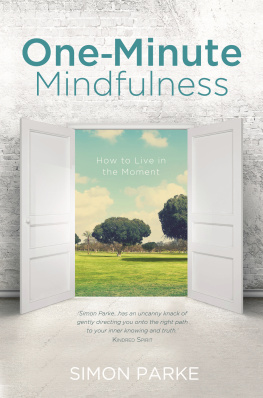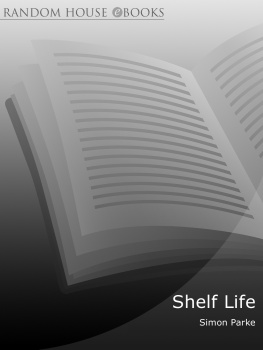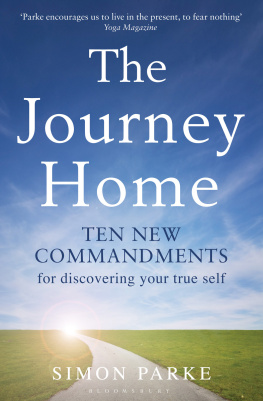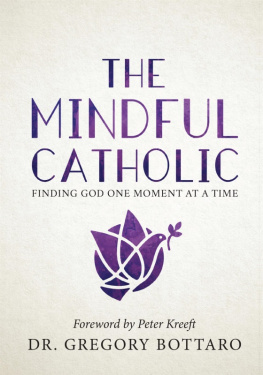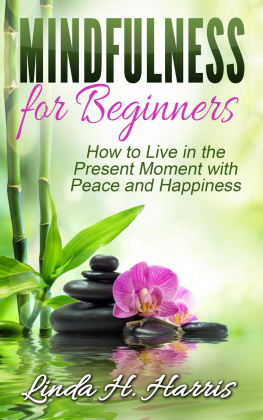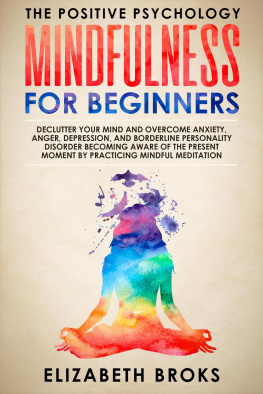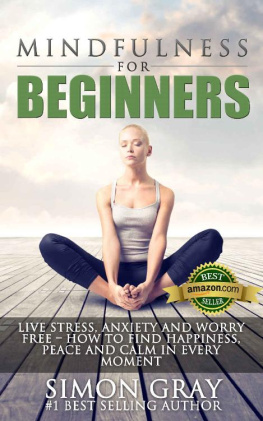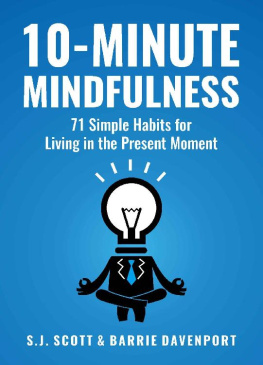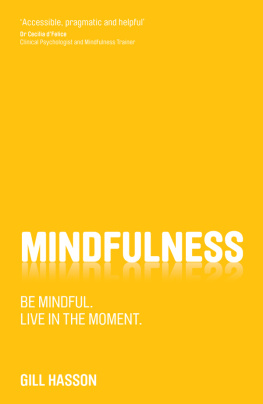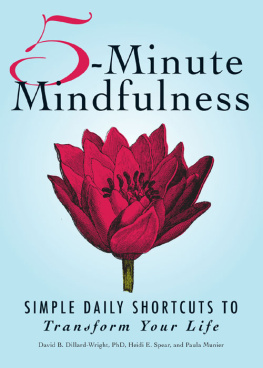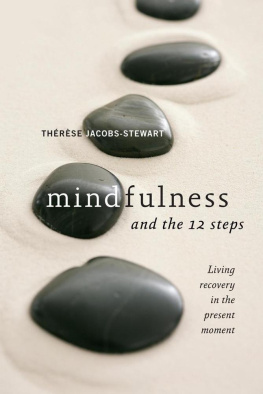
Simon Parke, 2011
The moral rights of the author have been asserted.
All rights reserved. No part of this book may be reproduced by any mechanical, photographic or electronic process, or in the form of a phonographic recording; nor may it be stored in a retrieval system, transmitted or otherwise be copied for public or private use, other than for fair use as brief quotations embodied in articles and reviews, without prior written permission of the publisher.
The author of this book does not dispense medical advice or prescribe the use of any technique as a form of treatment for physical or medical problems without the advice of a physician, either directly or indirectly. The intent of the author is only to offer information of a general nature to help you in your quest for emotional and spiritual wellbeing. In the event you use any of the information in this book for yourself, which is your constitutional right, the author and the publisher assume no responsibility for your actions.
A catalogue record for this book is available from the British Library.
ISBN 978-1-84850-471-4 in Epub format
ISBN 978-1-84850-470-7 in Mobipocket format
Everyone is talking about mindfulness these days, in a manner Id never have predicted when the first edition of this book was published.
Im now asked to take mindfulness into businesses and schools; there are even big articles about it in The Financial Times.
Times have changed.
So maybe its a good moment to go back to basics and remind ourselves of the essence of this practice, which is a triangle (the strongest structure) of inner states, each supporting the other.
Mindfulness is awareness of your present experience with acceptance.
Here is its heartbeat, and in the pages that follow well be looking after this heart.
Well ponder the three points of the triangle:
- Awareness of yourself and the world
- Living in the present and
- Acceptance of your situation (which strangely is the catalyst for good change.)
In other words, how to live in the moment.
Mindfulness is simple, as easily grasped by children as adults; but simple can be hard for distracted minds. So be kind to yourself along the way.
This is no mindfulness text book; those already exist, and wonderfully.
Instead, I offer mindful stories and thoughts for when you sense the need for psychological or emotional shift in your life. Read them once, and then read again... allow them to soak into your consciousness.
We do not have to be anxious, fearful or depressed; and the start of our healing might be to notice that we are.
So welcome to these pages. The journey home to mindful living aware and present starts when you want it to.
BECOMING
SIMPLE
Ways to be simple when our tendency is to be simplistic.
The two are not the same.
In Search of the Unborn
Perhaps it is a strange place to start, but let there be something of the unborn in us today; for there, in that fragility, is our essence eternal and undying.
Trapped momentarily in time, we can lose touch with our essence and become children of multiplicity and distraction. We obsess over scraps of knowledge; we seek mastery of many things and worship broken images of truth.
Unborn, we were not so distracted but simple and without boundaries.
So, today, we take into our born lives something of the unborn. Into our multiplicity, we take simplicity; and into the world of competitive knowledge, we take poverty of knowing.
Today we take the deep unknowing of the unborn.
Present State
Perhaps the most basic teaching of the wisdom school is that our experience of truth is dependent on our state rather than our studies.
In the dawning of light in our lives, there can be no cheating or short cuts. Eight hours a day spent cramming mindfulness techniques in a library wont advance us an inch, for that is all about impatience and all about rush; and, as Philip Booth reminds us in his poem Heading Out, How you get there is where youll arrive.
If rush and impatience is your manner of spiritual travel, dont expect to arrive anywhere beautiful.
Instead, we are mindful of our state, for this alone determines our capacity to receive. As our level of being increases, wrote Maurice Nicoll, a British psychiatrist and teacher of the Fourth Way, receptivity to higher meaning increases. As our being decreases, the old meanings return.
As you listen to your breathing now, allow your present state to become apparent.
Three to Notice
Buddha saw three attitudes as particularly unhelpful for mindful living.
The first is greed, defined as a grabby reaching out for something or a clinging on to it. Its a craving, an attachment to the desired thing.
And its opposite is generosity or renunciation.
The second is hatred, defined as ill-will, judgmental thoughts or aversion to another. It is a pushing away of something deemed undesirable; or an attack on it.
And the opposite of hatred is human friendliness or the spacious absence of hate.
The third unhelpful attitude is delusion, which is the narrow knowing of ignorance or a puffed-up belief in our own knowledge; a belief that we see the whole picture, when in truth we glimpse only certain aspects of reality.
And the opposite of delusion is wisdom, which knows how little can be known.
We joyfully note these attitudes as they arise in us today.
The Sensible Dog
I once saw a dog jump off a high cliff; it was running one minute, gone the next and it was very shocking.
It was a greyhound, recently retired, and was being taken for a walk by its new owners. Unfortunately, what was obvious to them was not obvious to their pet. Previously, the dog had known only the safe world of cages and racetracks; consequently, it knew very little about freedom and nothing about cliffs.
Even, presuming the dog understood English, were someone to have said, Dont jump off the cliff, youll fall, it would have been nonsensical to the dog. Given the dogs previous experience of life, and the understanding created by this experience, the idea of falling would have had no meaning. With this mindset, jumping off the cliff was entirely sensible, even though it wasnt.
Remarkably, this story had a happy ending: the dog survived. But a truth about canine and human judgements still hung in the air
When a proposition sounds stupid, it may be that we are more stupid than the proposition.
Base Camp for Mindfulness
Just as there are many ways to approach the summit of Mount Everest, there are many ways to approach the truths of mindfulness.
But if we were to make a base camp from which to explore, I would choose this one: Mindfulness is awareness of present experience with acceptance and trust.
Staying true to this simple definition of mindfulness, allows us to explore the vast and wonderful mountain that is our present experience.
For now, we note only that mindfulness is not concerned with stale things, past happenings or old perceptions in which many are trapped.
Rather, it is an invitation to fresh experience and virgin knowing, in which present thoughts and emotions are allowed to speak without judgement or rejection.
This element of acceptance helps our wellbeing. Our psyche longs to be healed; and when it realizes that nothing it reveals will cause distress, it tends to reveal all.
A child has so much truth to tell when they feel no fear.
Next page
